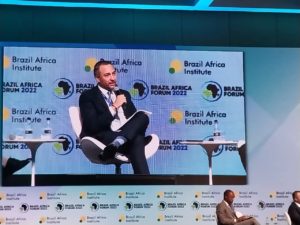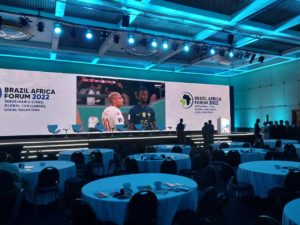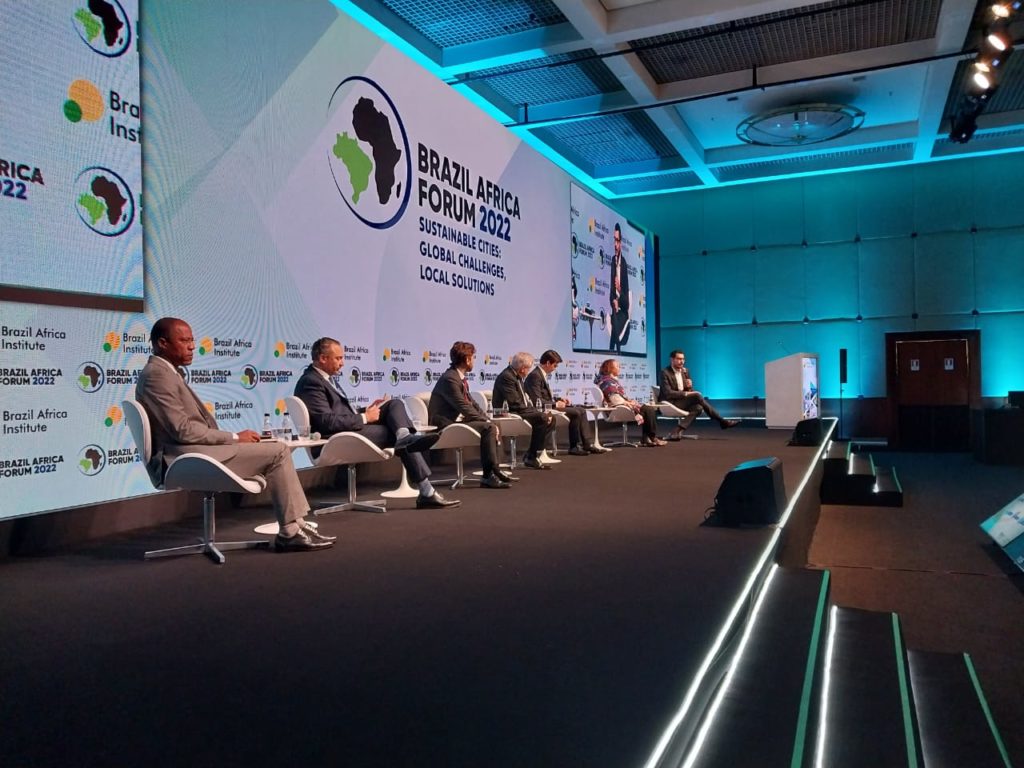São Paulo – Cape Verde’s capital city Praia is creating energy communities to increase the penetration of renewable energy at the local level and cut consumption costs for its population. Curitiba, Brazil, has developed several carbon neutrality projects as part of the C40, a group of cities around the world focused on fighting climate change. At a panel on Wednesday (30) at the Brazil Africa Forum in São Paulo, Brazil, experts discussed what African and Brazilian cities have done in this regard.
Praia mayor Francisco Carvalho talked about his city’s experience developing energy communities, with the creation of sustainable energy solutions for small groups and neighborhoods. He gave the example of an area in Praia where a school, a multi-sport field, a football field, a street and the common area of a housing complex were illuminated with solar power. “Even without the resources, it’s possible to start by doing very practical things, raising awareness,” Carvalho told the audience.
Curitiba deputy mayor Eduardo Pimentel talked about his city’s commitment with other municipalities across the world to dramatically reduce carbon emissions by 2050. The city hall has 426 solar panels, and both the public transport terminal and the road-rail terminal are being built with this solution. “When these projects are finished, we’ll be no longer emitting 70 tonnes of carbon,” Pimentel said. A former landfill site will host a solar farm that will supply to 60% of the public buildings of Curitiba.

Arab Brazilian Chamber of Commerce secretary-general & CEO Tamer Mansour spoke on the panel about the efforts for renewable energy among oil-producing countries. He talked about Saudi Arabia. “They are reinvesting the oil money in other areas, other types of energy,” he said. Mansour gave the example of how Saudi Arabia built two electric car plants. He pointed that out of the world’s ten largest funds, three are Arab and are investing more and more in sustainable areas.
When journalist and moderator asked the panel “The Rise of Renewable Energies for the Future of Cities” about how water scarcity has been as a driver for the African evasion to other countries, the mayor of Praia told what his city has done in this regard. In partnership with the private sector, a platform was created for the African diaspora to invest in the municipality. Some of the projects are profit generators as any other investment, while others have non-profit social purposes, such as creating solutions for water scarcity.

Soon after the explanation, another panelist, SouthBridge Investments CEO Frannie Léauthier, said this sustainable project area is an opportunity for partnerships between Brazil and Africa. Léauthier discussed the advantages of renewable energy, particularly for emerging countries, such as allowing for innovation, even in small projects. She also discussed initiatives in Africa for sustainability, such as reforesting and renewable energy applications in Kenya.
FONPLATA Strategic Alliances general coordinator Henrique Pissaia also spoke on the panel. The development bank is formed by Argentina, Bolivia, Brazil, Paraguay and Uruguay, and it supports projects of cities, provinces and states based on local needs and realities and focusing on integration. Itaipu Binational former director general Jorge Samek also spoke on the panel and talked about the exchange with Arab countries when he was running the power station. He referred to the project of the Inga dams in Congo as one of the world’s largest potentials in the sector. “It’ll come out one day,” he said. As an incentive to Africans in the sector, he talked the history of Itaipu, which was entirely built with funding and the value is being paid with the energy generated.
Arab countries on the global agenda
ABCC’s Tamer Mansour also have an overview of the latest events in the Arab world that have been in the heart of the global agenda, such as Expo 2020 in Dubai, United Arab Emirates, from 2021 to 2022, followed by the United Nations Climate Change Conference, COP27, in Egypt earlier this month, and now by the World Cup 2022 in Qatar. There have also been climate meetings in Saudi Arabia, and COP28 will take place in the UAE next year.
The executive pointed out that all this comes in the wake of the pandemic and that Brazil played a key role for the world and the Arab countries in the COVID-19 period by ensuring food security. “The Arab world has invested heavily in the last couple of years in Brazil, particularly in food security an infrastructure,” he said. He added that for Brazil to grow food, the Arab countries also played a key role in supplying fertilizers, as the sector has undergone a global supply crisis.
Forum
The Brazil Africa Forum is held by the Brazil Africa Institute (IBRAF), which is chaired by João Bosco Monte. After two online editions in 2020 and 2021, the event is taking place in person again on November 29 and 30 at WTC Events in São Paulo, Brazil. The ABCC was one of its supporters. The institution offered during the break of the event on Wednesday (30) the screening of the Tunisia vs. France match in the World Cup, which was won by Tunisia.
Translated by Guilherme Miranda




